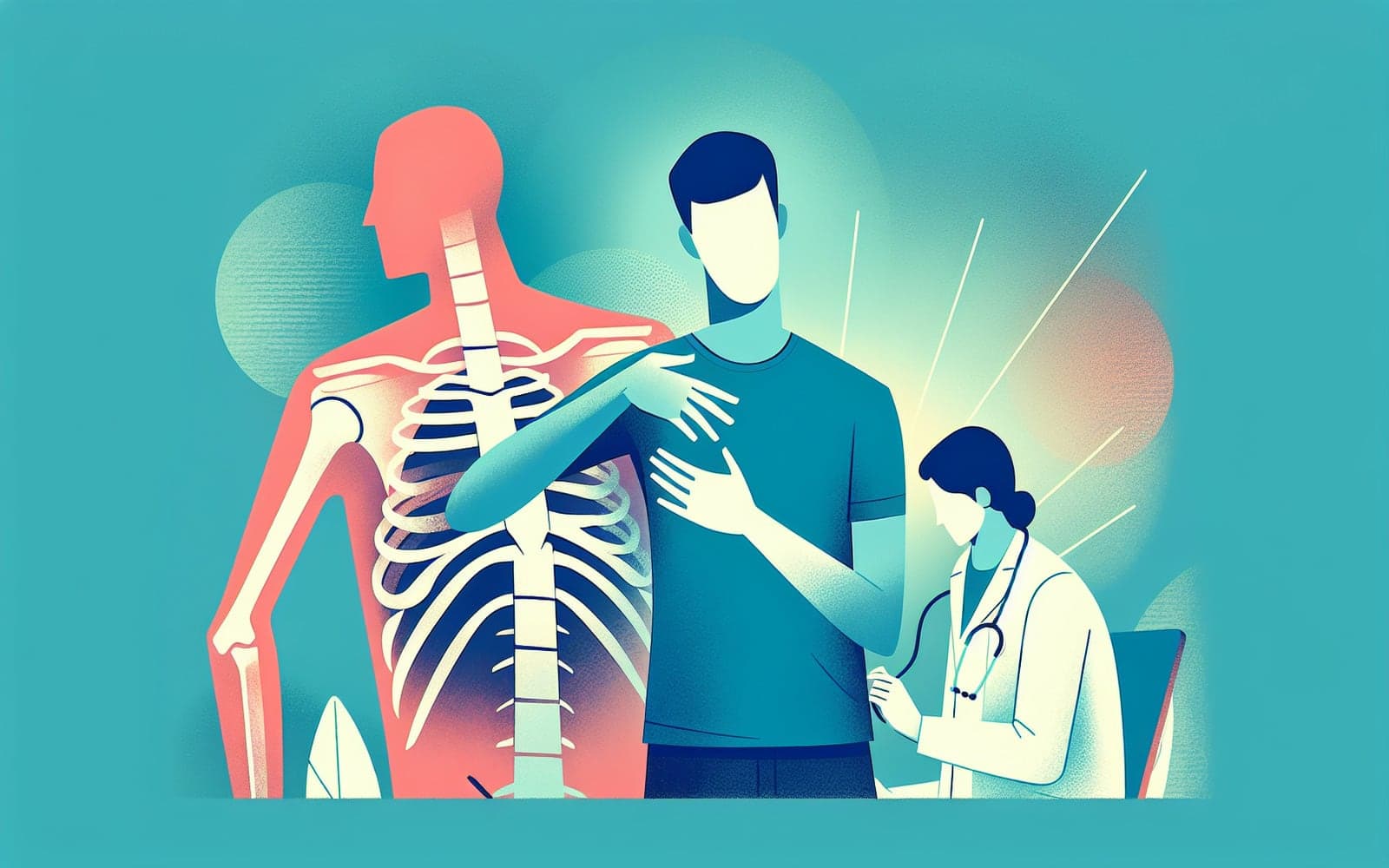Clavicle Fractures: What You Need to Know
Published: Oct 21, 2023

Medically reviewed by Alan Lucks | MD, Alan Lucks MDPC Private Practice - New York on October 21st, 2023.
Clavicle fractures are common, often resulting from falls or accidents. Understanding their presentation and management can help you navigate treatment options.
Contents
Understanding Clavicle Fractures
A clavicle fracture, or broken collarbone, usually happens from a fall onto the shoulder. These fractures are categorized by where they occur on the bone: middle, distal, or proximal. About 69% of these fractures happen in the middle section. While most fractures heal well, some may require surgery if they are severely displaced.
How Are They Diagnosed?
Doctors use X-rays to diagnose clavicle fractures, typically taking a frontal view to see the break. If the fracture is not clear, a different angle might be used. In some cases, a CT scan is needed to get a better look, especially if other injuries are suspected.

Treatment Options
Treatment depends on the fracture's severity. Simple fractures often heal with a sling and pain relief, while more complex fractures might need surgery. The aim is to manage pain and ensure the bone heals correctly.
Frequently Asked Questions
Falling onto the shoulder is the most common cause.
They are categorized by location: middle, distal, or proximal.
No, only severely displaced fractures may require surgery.
Yes, especially if the fracture is not clear on X-rays.
Key Takeaways
Understanding the type and severity of a clavicle fracture is crucial for effective treatment.
Talk to Doctronic about your clavicle fracture concerns today!Related Articles
References
Postacchini F, Gumina S, De Santis P, Albo F. Epidemiology of clavicle fractures. J Shoulder Elbow Surg 2002; 11:452.
Robinson CM. Fractures of the clavicle in the adult. Epidemiology and classification. J Bone Joint Surg Br 1998; 80:476.
This article has been reviewed for accuracy by one of the licensed medical doctors working for Doctronic. Always discuss health information with your healthcare provider.

